Subaru Solterra vs Toyota C-HR - Differences and prices compared
Compare performance (343 HP vs 223 HP), boot space and price (39400 £ vs 29100 £ ) at a glance. Find out which car is the better choice for you – Subaru Solterra or Toyota C-HR?
Costs and Efficiency:
Looking at overall running costs, both models reveal some interesting differences in everyday economy.
Toyota C-HR has a clearly perceptible advantage in terms of price – it starts at 29100 £ , while the Subaru Solterra costs 39400 £ . That’s a price difference of around 10286 £.
As for electric range, the Subaru Solterra performs significantly better – achieving up to 532 km, about 466 km more than the Toyota C-HR.
Engine and Performance:
Power, torque and acceleration say a lot about how a car feels on the road. This is where you see which model delivers more driving dynamics.
When it comes to engine power, the Subaru Solterra has a evident edge – offering 343 HP compared to 223 HP. That’s roughly 120 HP more horsepower.
In acceleration from 0 to 100 km/h, the Subaru Solterra is significantly quicker – completing the sprint in 5.10 s, while the Toyota C-HR takes 7.40 s. That’s about 2.30 s faster.
Space and Everyday Use:
Cabin size, boot volume and payload all play a role in everyday practicality. Here, comfort and flexibility make the difference.
Both vehicles offer seating for 5 people.
In curb weight, Toyota C-HR is clearly perceptible lighter – 1505 kg compared to 2013 kg. The difference is around 508 kg.
In terms of boot space, the Subaru Solterra offers barely noticeable more room – 452 L compared to 447 L. That’s a difference of about 5 L.
When it comes to payload, Subaru Solterra clearly perceptible takes the win – 537 kg compared to 425 kg. That’s a difference of about 112 kg.
Who wins the race in the data check?
The Subaru Solterra sits well ahead of its rival in the objective data comparison.
This result only shows which model scores more points on paper – not which of the two cars feels right for you.
Costs and Consumption
View detailed analysis
Engine and Performance
View detailed analysis
Dimensions and Body
View detailed analysis
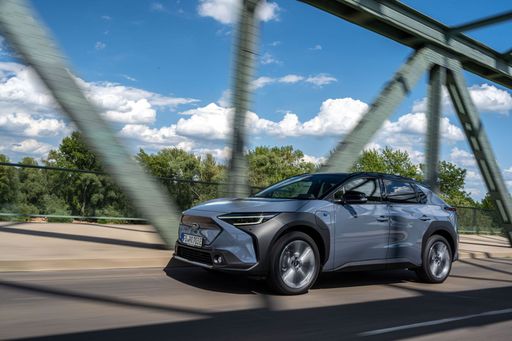
Subaru Solterra
Subaru Solterra
The Subaru Solterra translates Subaru's rugged, go-anywhere character into an electric package, offering sure-footed handling and a thoughtfully practical cabin that feels ready for weekend escapes. It isn't trying to outshine flashier rivals — instead it stakes its claim on reliability and friendly simplicity, making it a sensible, slightly cheeky choice for buyers who want an EV that behaves like a Subaru.
details
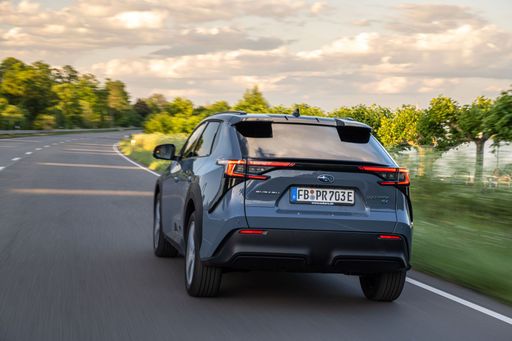
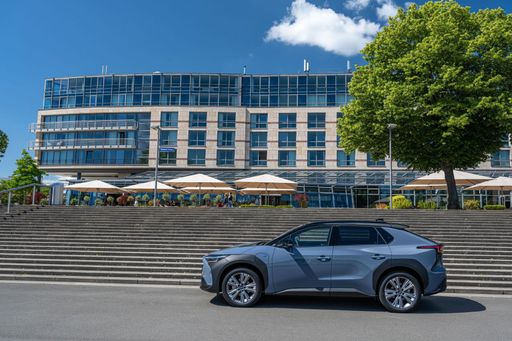
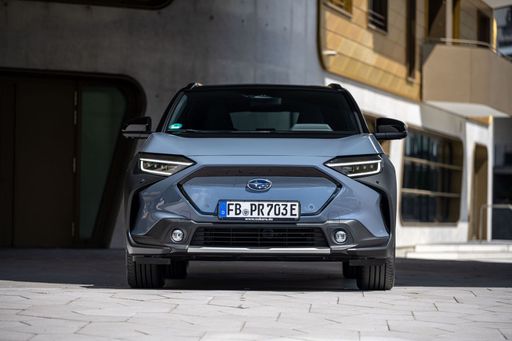
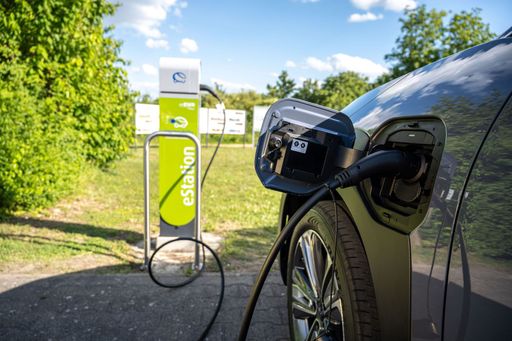
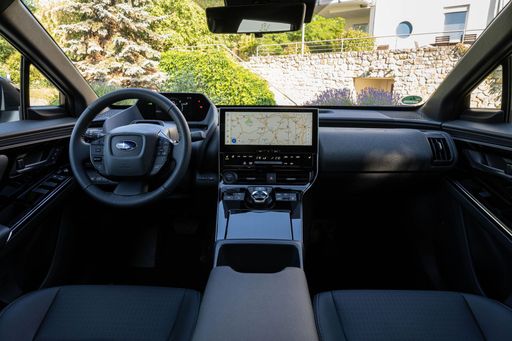
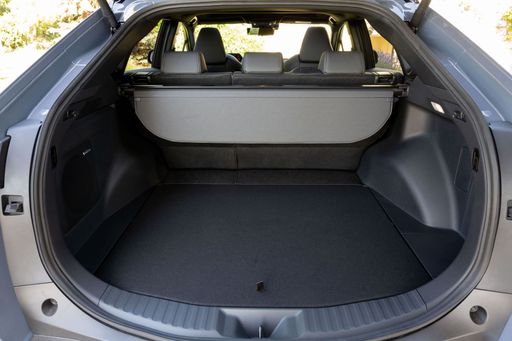
Toyota C-HR
The Toyota C-HR cuts a striking figure with its angular styling and coupe-like profile, so you’ll never go unnoticed in the supermarket car park. It balances everyday practicality with a nimble, city-friendly personality, making routine commutes feel a touch more fun without asking for forgiveness.
details




Costs and Consumption |
|
|---|---|
|
Price
39400 - 46200 £
|
Price
29100 - 42800 £
|
|
Consumption L/100km
-
|
Consumption L/100km
2.3 - 5.1 L
|
|
Consumption kWh/100km
16 - 17.9 kWh
|
Consumption kWh/100km
-
|
|
Electric Range
416 - 532 km
|
Electric Range
66 km
|
|
Battery Capacity
-
|
Battery Capacity
-
|
|
co2
0 g/km
|
co2
52 - 116 g/km
|
|
Fuel tank capacity
-
|
Fuel tank capacity
-
|
Dimensions and Body |
|
|---|---|
|
Body Type
SUV
|
Body Type
SUV
|
|
Seats
5
|
Seats
5
|
|
Doors
5
|
Doors
-
|
|
Curb weight
2013 - 2100 kg
|
Curb weight
1505 - 1755 kg
|
|
Trunk capacity
441 - 452 L
|
Trunk capacity
350 - 447 L
|
|
Length
4690 mm
|
Length
-
|
|
Width
1860 mm
|
Width
1832 mm
|
|
Height
1650 mm
|
Height
-
|
|
Max trunk capacity
-
|
Max trunk capacity
-
|
|
Payload
485 - 537 kg
|
Payload
375 - 425 kg
|
Engine and Performance |
|
|---|---|
|
Engine Type
Electric
|
Engine Type
Full Hybrid, Plugin Hybrid
|
|
Transmission
Automatic
|
Transmission
Automatic
|
|
Transmission Detail
Reduction Gearbox
|
Transmission Detail
CVT
|
|
Drive Type
All-Wheel Drive
|
Drive Type
Front-Wheel Drive, All-Wheel Drive
|
|
Power HP
218 - 343 HP
|
Power HP
140 - 223 HP
|
|
Acceleration 0-100km/h
5.1 - 6.9 s
|
Acceleration 0-100km/h
7.4 - 9.9 s
|
|
Max Speed
160 km/h
|
Max Speed
-
|
|
Torque
336 - 437 Nm
|
Torque
-
|
|
Number of Cylinders
-
|
Number of Cylinders
4
|
|
Power kW
160 - 252 kW
|
Power kW
103 - 164 kW
|
|
Engine capacity
-
|
Engine capacity
1798 - 1987 cm3
|
General |
|
|---|---|
|
Model Year
2022 - 2026
|
Model Year
2026
|
|
CO2 Efficiency Class
A
|
CO2 Efficiency Class
C, D, B
|
|
Brand
Subaru
|
Brand
Toyota
|
Is the Subaru Solterra offered with different drivetrains?
The Subaru Solterra is offered with All-Wheel Drive.
